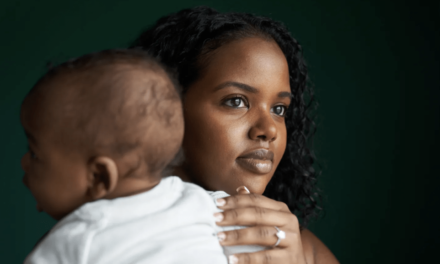
Photo by marco fileccia on Unsplash
By Dena Vang
Over the course of the COVID-19 pandemic, families and schools have worked tirelessly to create safe learning environments for students while also providing services such as school meals, extended daycare, extracurricular activities, and social services. With the 2021–2022 school year upon us, schools are continuing to adjust policies and practices with the same goal in mind—limiting the transmission of COVID-19.
“It’s a critical moment for us to slow the spread,” said Dr. Cameron Webb, Senior Policy Advisor for Equity on the White House COVID-19 Response Team. “This is the season of back to school and back to work, and we have to make sure that as folks are going back into communities, back into spaces, .”
The Centers for Disease Control and Prevention (CDC) recently changed its masking recommendations due to the growing concern of the Delta variant, which has shown to be more transmissible than other strains of the virus. The CDC recommends that all students in kindergarten through 12th grade wear a mask in school, regardless of their vaccination status.
“There are a number of schools that have been struggling with the decision of whether or not to have masking remain optional versus requiring universal masking of vaccinated and unvaccinated children,” said Dr. Michele Benoit-Wilson, Obstetrics and Gynecology Specialist in Raleigh, North Carolina. “If we’re all in agreement that keeping our children in school is critical to both their education and their mental health, I think it then follows that we need to keep them as safe as possible.”
Experts are suggesting the following to keep your children safe as they return to school.
Find time to talk about the pandemic – The pandemic has impacted us, including children, mentally and emotionally. Finding time to talk about how your child is feeling and about school procedures and policies will help them set expectations and ease some of the anxiety. The National Association of School Psychologists suggests letting your children’s questions guide you. Answer their questions truthfully, but don’t offer unnecessary details or facts. Don’t avoid giving them the information that experts indicate as crucial to your children’s well-being. Children always feel empowered if they can control some aspects of their life. A sense of control reduces fear.
Wear a mask correctly and consistently – Find a mask that is made for children to ensure a proper fit. Check to be sure the mask fits snugly over the nose and mouth and under the chin and that there are no gaps around the sides. The CDC is asking parents to remind their children that masks should be worn at all times except for certain settings or activities such as eating or drinking. Masks should be used in all classroom and non-classroom settings, including hallways, school offices, restrooms, gyms, and auditoriums.
Get your child vaccinated if they are eligible – Children ages 12 to 15 are currently eligible for a COVID-19 vaccine. These vaccines have been used under the most intensive safety monitoring in US history. The Pfizer-BioNTech COVID-19 vaccine is now available for everyone ages 12 years and older. In the clinical trial for children 12 through 15 years old, no safety concerns were identified with that vaccine. The clinical trial also showed that the vaccine was 100 percent effective for preventing COVID-19 with symptoms in children 12 through 15 years old.
“We know that universal masking works, but the leading way to end this epidemic is vaccination, and the reality is that many parents cannot get their children vaccinated simply because they are too young,” said Dr. Benoit-Wilson. “If we want to prioritize the health of children, if we want to prioritize the health of families, it’s critically important for us as a community, as a nation, to embrace whatever we know has been proven scientifically to reduce the infection rate; that is, number one, vaccinating, and number two, masking. The reality is that some people cannot get vaccinated, and so it’s important for the people around them to be vaccinated and for all of us to wear our masks indoors.”
To find a vaccine site, search vaccines.gov, text your ZIP code to 438829, or call 1-800-232-0233 to find locations near you.
For back-to-school toolkits and resources, visit the We Can Do This website.
Dena Vang is the Public Relations Manager at Creative Marketing Resources, a strategic marketing agency in Milwaukee and a partner of the Department of Health and Human Services (HHS).
The opinions on this page are those of the writers and not necessarily those of the AFRO. Send letters to The Afro-American • 145 W. Ostend Street Ste 600, Office #536, Baltimore, MD 21230 or fax to 1-877-570-9297 or e-mail to editor@afro.com
Help us Continue to tell OUR Story and join the AFRO family as a member – subscribers are now members! Join here!
The post COVID-19 safety: How to prepare your kids for back to school appeared first on AFRO American Newspapers .











